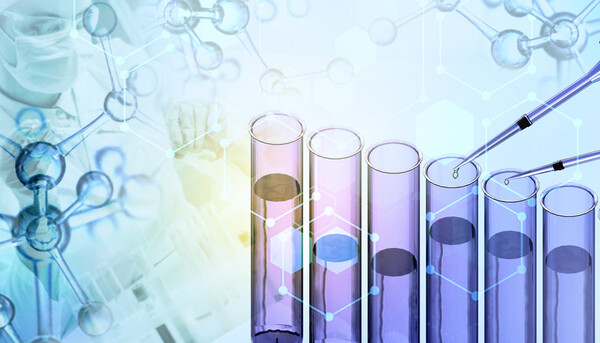Korea has been trying to enter the global drug market but has struggled in oncology.
However, the rise of new drug modalities like antibody-drug conjugates (ADC), bispecific antibodies, immuno-oncology drugs, cell and gene therapies, and proteolysis-targeting chimeras (PROTAC) shows promise for domestic oncology drug pipelines aligning with recent FDA approvals.
According to the latest IQVIA report on global oncology trends, emerging biopharma companies accounted for over 70 percent of new oncology drugs in the U.S. in 2022. This hints at the potential for up-and-coming Korean pharma to develop blockbuster drugs with novel targets and mechanisms of action (MOA).

Success and failures in domestic oncology
Out of 36 Korean-made drugs, only seven are cancer medicines, but none of them have reached blockbuster potential yet.
Some of these homegrown drugs have faced setbacks, with a few losing domestic sales approval due to underwhelming performances. For example, SK Chemical's Sunpla for gastric cancer, the first homegrown medicine, and Donghwa Pharmaceutical's Milican injection for liver cancer have faced such challenges.
However, there have been recent successes in the domestic market, such as Yuhan Corp.'s Leclaza (ingredient: lazertinib), which received approval as a first-class treatment for non-small cell lung cancer (NSCLC). This approval has brought attention to the drug, with hopes of winning FDA approval soon and potentially becoming a blockbuster.
Despite some progress, Korea's share of the global oncology pipeline has remained low and stable, hovering around two to three percent. Despite an 82 percent growth in the absolute number of active programs in the last five years, the country's presence in the global oncology landscape has not seen significant expansion.
Oncology pipeline support by KDDF
The Korean Drug Development Project (KDDF) has played a significant role in supporting the oncology pipeline, with more than half of its assets allocated to this field. This indicates the government's commitment to backing these drug developments, despite the inherent high failure rates in the industry.
KDDF's mission is to bolster the entire life cycle of new drug development in Korea, aiming to enhance the global competitiveness of the domestic pharmaceutical and bio industries while ensuring drug sovereignty. However, the majority of candidates tend to receive support at the early stages of development. Currently, about 90 percent of the KDDF's oncology pipeline is in the discovery and pre-clinical phases.
KDDF has observed a shift in the overall drug development trend, with a focus on modalities involving chemoproteomics, targeting transcription factors, protein degraders, molecular glues, and small molecules for immunology, oncology, or auto-immune diseases.
During the recent Bioplus-Interphex conference, attention was drawn to ADC (Antibody-Drug Conjugate) and PROTAC technologies. Domestic companies like LegoChem and Orum Therapeutics are actively involved in this field.
LegoChem is working on an ADC for solid tumors, specifically targeting TROP2 overexpression. Meanwhile, Orum Therapeutics is developing a targeted protein degrader (TPD) drug candidate for breast cancer, which is currently in phase 1 clinical trials in the U.S.
Despite still being in early-phase trials, there are high expectations for Orum Therapeutics' TPD drug candidate, especially considering that the most clinically advanced targeted degrader in the market is expected to enter phase 3 trials next year for advanced prostate cancer.
Positive indicators for Korean pharma in oncology
The landscape of global oncology pipelines has seen significant changes over the past decade, with emerging biopharma companies representing 71 percent of the pipeline in 2022, up from 45 percent ten years ago. This trend bodes well for Korean biopharma's prospects. In 2022, the FDA approved 49 therapeutics, and cancer drugs continued to dominate the list, accounting for 27 percent, the highest among all therapeutic areas.
Several of the globally approved cancer drugs in 2022 represented new targets and modalities, showcasing advancements in the field.
For instance, BMS' LAG3 blocker relatlimab expanded the immune checkpoint inhibitor class beyond PD-1 and CTLA-4 inhibitors in the U.S.
Korean company Genome&Company's GENA-119, an immune checkpoint inhibitor aimed at suppressing T cell activation and neutralizing immunosuppressive activity, also received support from KDDF.
Abion, a Korean firm, is making strides in the development of a first-in-class antibody treatment called ABN501. This innovative therapy targets the Claudin 3 protein (CLDN3) and holds potential for treating various cancers, including lung, breast, and ovarian cancer.
Voronoi, another Korean company, is also making noteworthy progress with its drug candidate VRN10. This treatment is specifically designed for HER2-positive solid cancers and shows promising capabilities in penetrating the brain to address early-stage cancer brain metastases.
Meanwhile, the U.S. FDA has approved Immunocore's tebentafusp, a groundbreaking bispecific T-cell-engaging biologic. Tebentafusp combines a gp100–HLA-targeted T cell receptor (TCR) domain to bind cancer cells and a CD3-binding antibody domain to recruit T cells. This approval marks a significant advancement in cancer therapeutics, although there are currently no bispecific T-cell-engaging biologics listed in the KDDF pipeline.
Regarding the KDDF oncology pipeline, it predominantly consists of small molecules, followed by antibody drugs. While there are currently no bispecific T-cell-engaging biologics in the KDDF list, the development of tebentafusp by Immunocore reflects the potential for such novel therapies in the future.
Furthermore, the FDA's approval of the first radioligand therapy for a common cancer in the previous year has provided hope for FutureChem and CellBion's drug candidates, which are currently in phase 1 and 2 trials.
Related articles
- GI Innovation to pursue license out deal for allergy treatment with Japanese firms
- Exkivity's clinical value noted in treating rare EGFR exon 20 insertion mutation in NSCLC
- 'FDA Project Optimus set to affect all cancer drug developers, not just in the U.S.'
- T cell bispecific antibody cancer therapies gaining traction in Korea
- Regulator throws support behind ADC development with clinical guideline
- BMS Onureg bags insurance coverage in Korea for AML patients

